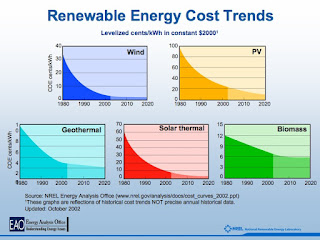Dramatic Changes in Costs Shifting the Debate on Renewable Energy
The standard refrain from opponents of renewable energy is that it is expensive and too variable for a stable grid. These arguments have always been exaggerated, so several European countries have high RES penetration without serious problems. But now the arguments against RES have an obviously expiring shelve life. They have simply been out-paced by technological and economic developments.
The latest news comes from a new January 2018 report by the International Renewable Energy Agency (IRENA). Their conclusions:
- Renewable power generation costs continue to fall and are already very competitive to meet needs for new capacity.
- Competitive procurement – including auctions – accounts for a small fraction of global renewable energy deployment. Yet these mechanisms are very rapidly driving down costs in new markets..
- Global competition is helping to spread the best project development practices, reducing technology and project risk and making renewables more cost-competitive than ever before.
- In developed countries, solar power has become cheaper than new nuclear power.
- The levelised cost of electricity (LCOE) from solar photovoltaics (PV) decreased by 69% between 2010 and 2016 – coming well into the cost range of fossil fuels.
- Onshore wind, whose costs fell 18% in the same period, provides very competitive electricity, with projects routinely commissioned nowadays at USD 0.04/kWh.
- As installation accelerates, the cost equation for renewables just gets better and better. With every doubling of cumulative installed capacity for onshore wind, investment costs drop by 9% while the resulting electricity becomes 15% cheaper.
- Solar PV module costs have fallen by about four-fifths, making residential solar PV systems as much as two-thirds cheaper than in 2010.



Comments